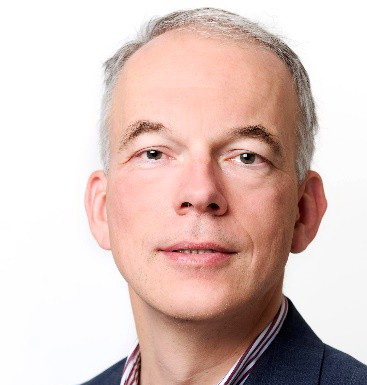嘉宾介绍
-

Detlef Lohse 荷兰屯特大学教授
University of Twente
荷兰皇家科学院院士
德国科学院院士
-
报告题目:Droplets and bubbles with phase transitions
In this talk I will describe and explain several simple experiments in which phase transitions in and around single droplets and bubbles play an important role. The talk will cover vapor bubbles and freezing and boiling droplets, on cold and hot surfaces, and in cold and hot surrounding liquid, showing beautiful and often unexpected phenomena.
One example consists of a drop of water that freezes from the outside: the expansion of water upon freezing is incompatible with the self-confinement by a rigid ice shell. Using high-speed imaging we show that this conundrum is resolved through an intermittent fracturing of the brittle ice shell and cavitation in the enclosed liquid, culminating in an explosion of the partially frozen droplet. We propose a basic model to elucidate the interplay between a steady buildup of stresses and their fast release. The model reveals that for millimetric droplets the fragment velocities upon explosion are independent of the droplet size and only depend on material properties (such as the tensile stress of the ice and the bulk modulus of water). For small (submillimetric) droplets, on the other hand, surface tension starts to play a role. In this regime we predict that water droplets with radii below 50 μm are unlikely to explode at all. We expect our findings to be relevant in the modeling of freezing cloud and rain droplets.
Another example is a liquid droplet that impacts a solid surface so hot that enough vapor is generated under it to prevent its contact with the solid. The minimum solid temperature for this so-called Leidenfrost effect to occur is termed the Leidenfrost temperature. We observe the wetting or drying and the levitation dynamics of the droplet using high-speed total internal reflection imaging, which enables us to observe the droplet base up to about 100 nm above the substrate surface. By this method we are able to reveal the processes responsible for the transitional regime between the fully wetting and the fully levitated droplet as the solid temperature increases, thus shedding light on the characteristic time and length scales setting the dynamic Leidenfrost temperature for droplet impact on an isothermal substrate.
个人简介
Detlef Lohse got his his PhD on the theory of turbulence in Marburg/Germany in 1992. As a postdoc in Chicago and later in Marburg and Muenchen he worked on single bubble sonoluminescence. In 1998 he got appointed as Chair of Physics of Fluids at the University of Twente, The Netherlands, where he still is.
Lohse's present research subjects are turbulence and multiphase flow, biomedical flow, granular matter, and micro- and nanofluidics. Both experimental, theoretical, and numerical methods are used in his group.
Lohse is Associate Editor of Journal of Fluid Mechanics, Annual Review of Fluid Mechanics, and several other journals. He is Fellow of the American Physical Society, Division of Fluid Dynamics, and of IoP. He is also elected Member of the German Academy of Science (Leopoldina), the Royal Dutch Academy of Science (KNAW), the Koninklijke Hollandsche Maatschappij der Wetenschappen, and External Member of the Max Planck Society. He received various prizes such as the Spinoza Prize (2005), the Simon Stevin Prize (2009), two ERC-Advanced Grants (2011, 2017), the Physica Prize (2011), the George K. Batchelor Prize for Fluid Dynamics (2012), the AkzoNobel Prize (2012), the American Physical Society Fluid Dynamics Prize (2017), the Balzan Prize (2018), and the Max Planck Medal (2019). He also set up the first (and up to now only) Dutch Max-Planck Center (2016, on Complex Fluid Dynamics).
